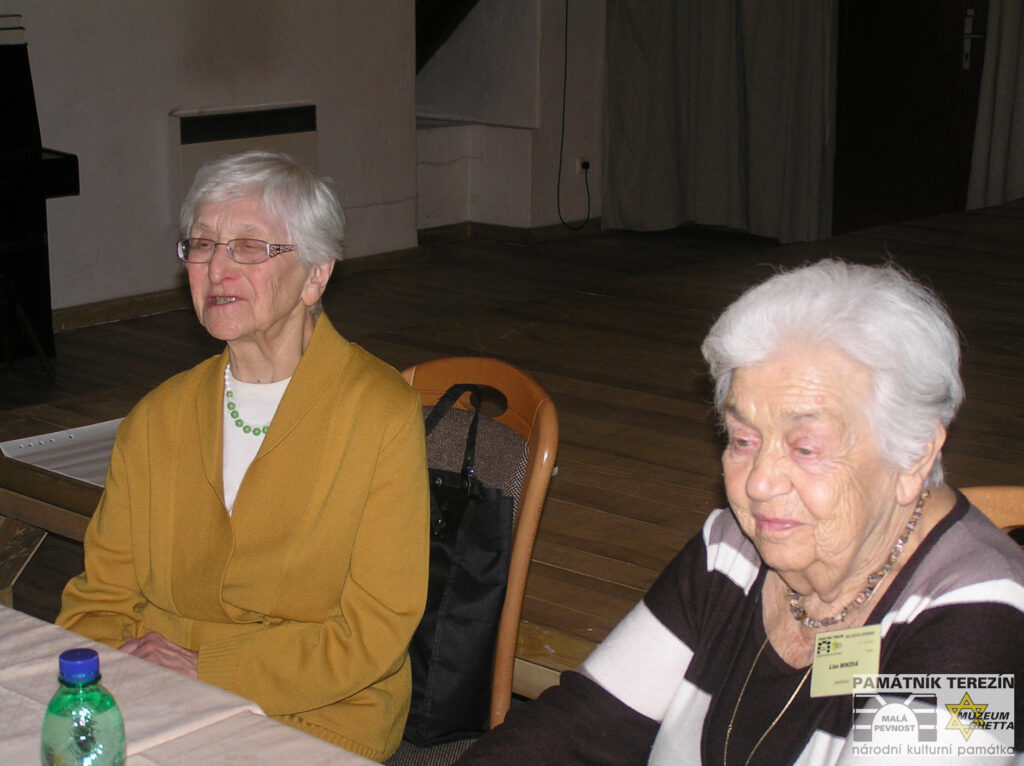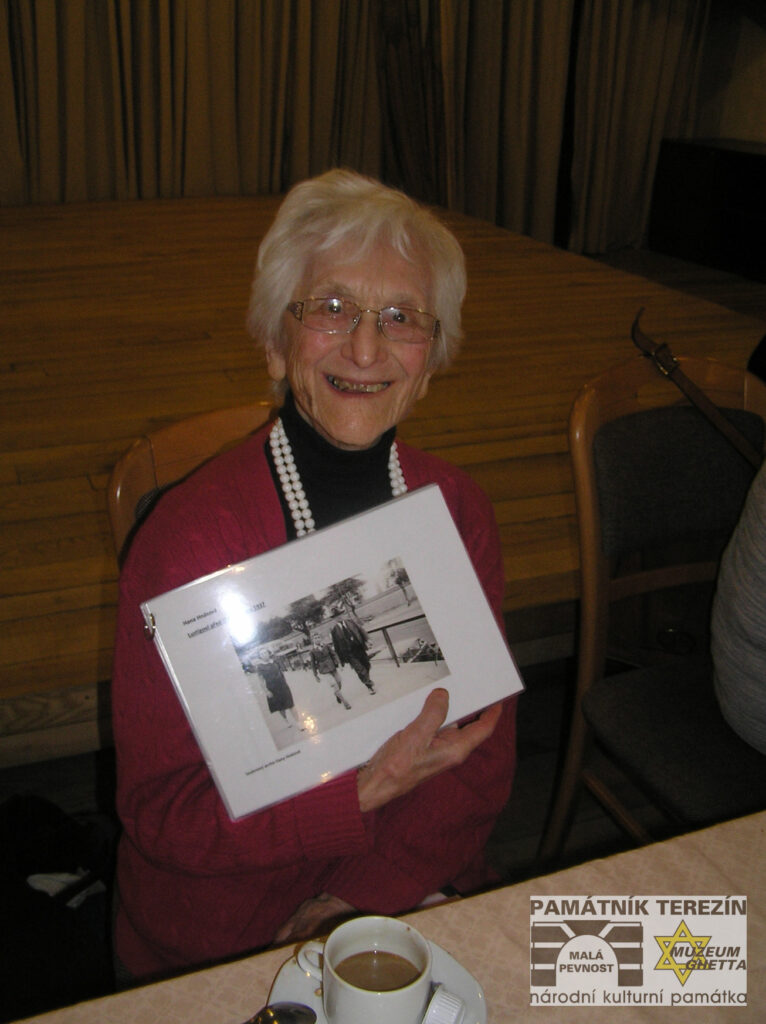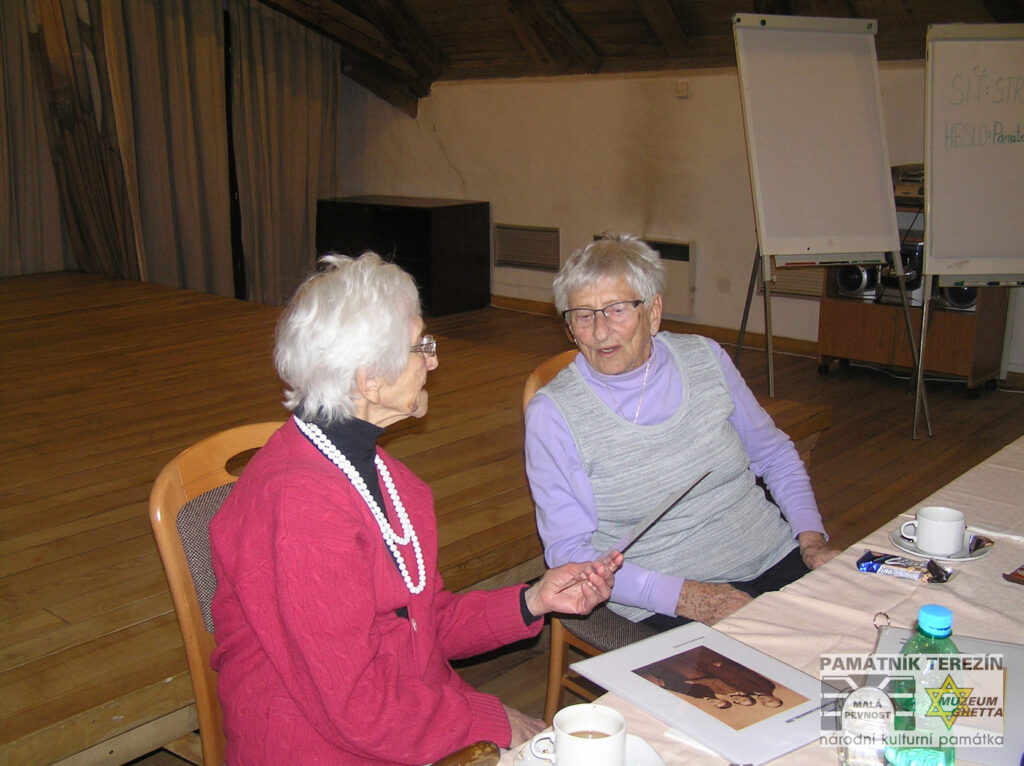Regrettably, Lisa Miková, Hana Hnátová and Bohumila Havránková, Holocaust survivors, passed away in 2022. In the past decades, they often came to the Terezín Memorial to take part in debates with young people as well as schoolteachers. Thanks to those contacts we could get to know one another much better and we would now like to devote this article to our recollections of the three deceased ladies.
From the late 1930s, the families of all three – then girls or young women – were persecuted because of their Jewish origin. Initially they were pestered by various orders, bans and commands and finally there were deportations in store for all of them.
Lisa Miková, née Lichtensternová, was born in Prague on January 31, 1922. Exactly twenty years later, on January 31, 1942, Lisa, her mother and father found themselves in a transport train heading to the Terezín Ghetto. Her parents were deported to the East already in 1943 and perished there. Still before their departure Lisa married in the Ghetto František Mautner (later Mika). In the late fall of 1944, the two of them were also sent by separate eastern transports, to concentration camp Auschwitz-Birkenau. Lisa was then moved from the camp to work in a factory in Freiberg and was liberated in the Mauthausen concentration camp.
After the war, she returned to Prague where she was happily reunited with her husband František. Later on, she finished a correspondence course at the secondary school for librarians in Leipzig and worked her whole life in book stores. She had one son.
Lisa Miková died on June 21, 2022.

Hana Hnátová, née Lustigová, was born in Prague on June 20, 1924. In November 1942, Hana with her mother and her brother Arnošt, two years her junior and later a well-known Czech writer, and Hana´s cousin Věruška were transported to the Terezín Ghetto. Their father was sent to the camp later. The fall of 1944 was a period of deportations to the Auschwitz-Birkenau concentration camp for the Lustig family. The first to leave were father and Arnošt, followed by the Lustig women and Věruška. Hanka was liberated in the Mauthausen concentration camp. With the exception of the father, who had been murdered in the Auschwitz-Birkenau death camp, the family was reunited in Prague after the war. Hana graduated from a high school and found a clerical job. She later got married and had two daughters.
Hana Hnátová died on August 5, 2022.

Bohumila Havránková, née Picková, was born in Liberec on November 17, 1927. The whole family moved to Prague in the fall of 1938. According to the Nazi Nuremberg Laws Bohunka and her younger sister were classified as half-breeds. Both girls were transported to the Terezín Ghetto in the spring of 1943. Before the end of the Second World War, in early May 1945, Bohunka managed to escape from Terezín and returned home.
After the war, she finished her studies at the school of graphic arts, specializing in photography. She worked in the editorial office of the daily Rudé právo, but she eventually had to leave due to her so-called bourgeois origin. After her maternity leave (she had two daughters), she was employed as a librarian in the Encyclopedia Institute of the Czechoslovak Academy of Sciences and later also in the foreign trade enterprise VELAZ (Large-scale Breeding of Laboratory Animals).
Bohumila Havránková died on December 5, 2022.

After 1989 all the three ladies joined the newly established Terezín Initiative, associating the former inmates of the Terezín and Lodż Ghettos coming from the Czech lands (and their direct descendants). The Terezín Initiative pays special attention to dignified commemoration of those who had perished during the Shoah, striving to actively co-participate in raising a new generation of Europeans in the spirit of tolerance, against racism, anti-Semitism and xenophobia.
During the past thirty years, our three dear Holocaust survivors managed to accomplish this mission of the Terezín Initiative in an admirable manner. All three ladies, despite their various motives and obstacles, always narrated their stories and those of their relatives gracefully and with their own sense of humor. People attending the debates had certainly noticed that the three Holocaust survivors would sometimes rather leave out some of the passages from their lives, stop bringing their wartime memories to mind and recalling them. But they invariably managed such painful situations, definitely falling back on their incredible inner strength, their positive approach to life and their ability to cope with the adversities of their fates.
Naděžda Seifertová


